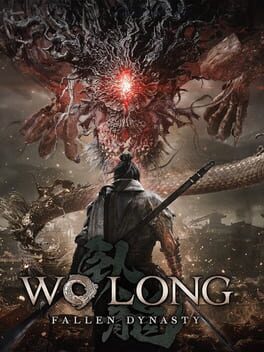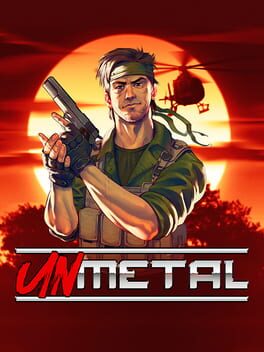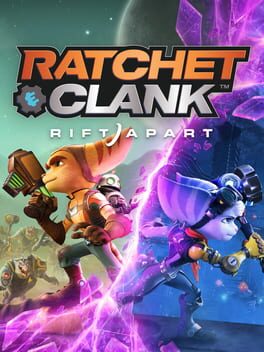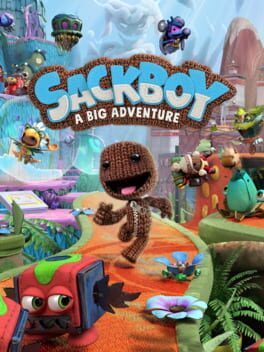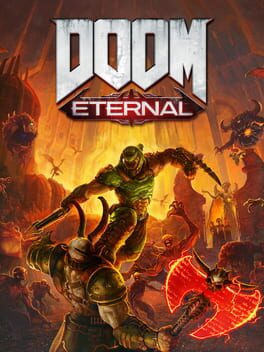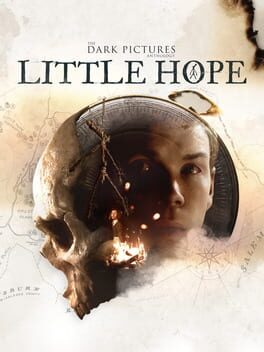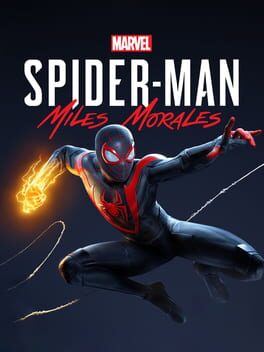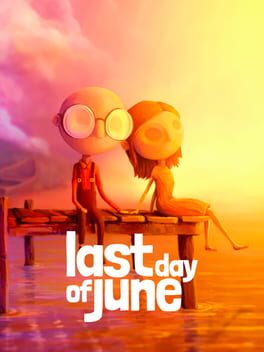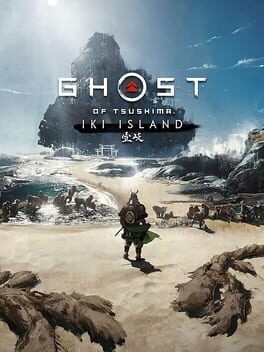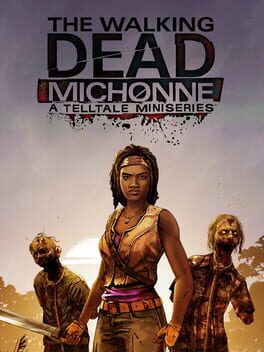x_manicure_x
My body was craving a souls-like, and the visuals, reminiscent of Sekiro, did the rest. Surely, I was not expecting a masterpiece, but the game indeed comes out rather bland and half-baked in most of its aspects. It’s enjoyable for the first few hours, mostly thanks to the combat system. Similar scenarios and the exact same enemies get rehashed with little difference for the whole game. My rating could have been slightly higher if the game had been half as long.
While initially engaging with its parry-based mechanics, the combat system loses its edge as the game unfolds. The first bosses pose a satisfying challenge, but the later stages become noticeably easier, especially for those who went through the additional subquests. It's a system that offers a decent level of challenge, but that could have been more consistently rewarding throughout the game's duration.
While the game presents players with the option to utilize spells and customize equipment with special effects, these elements, regrettably, turned out to be disappointingly irrelevant. Opting for the highest-powered gear and mastering the parrying mechanics should be enough to let you win most encounters. Even money and loot end up having little purpose, as you will get disgustingly rich and full of gear without even noticing.
Despite an intriguing art direction in key visuals, the in-game graphics lacked the polish expected, and the level design succumbed to unexpected repetitiveness. The cutscenes are also some of the most uninteresting things I’ve ever seen in a videogame. Poorly directed and atrociously written.
In summary, the game is a decent yet highly forgettable experience.
While initially engaging with its parry-based mechanics, the combat system loses its edge as the game unfolds. The first bosses pose a satisfying challenge, but the later stages become noticeably easier, especially for those who went through the additional subquests. It's a system that offers a decent level of challenge, but that could have been more consistently rewarding throughout the game's duration.
While the game presents players with the option to utilize spells and customize equipment with special effects, these elements, regrettably, turned out to be disappointingly irrelevant. Opting for the highest-powered gear and mastering the parrying mechanics should be enough to let you win most encounters. Even money and loot end up having little purpose, as you will get disgustingly rich and full of gear without even noticing.
Despite an intriguing art direction in key visuals, the in-game graphics lacked the polish expected, and the level design succumbed to unexpected repetitiveness. The cutscenes are also some of the most uninteresting things I’ve ever seen in a videogame. Poorly directed and atrociously written.
In summary, the game is a decent yet highly forgettable experience.
Let’s start by just saying that the Final Fantasy series has been struggling to keep up with the times for at least the last twenty years, and that Square Enix’s approach for this “remake” trilogy stands out as their most successful attempt yet. Despite drawing on familiar material, they’ve managed to capture the same sense of scale and diversity of the classic games, delivering not only the most refined ATB-led combat experience to date, but also a plethora of minigames, side quests, areas to explore, and even temporary changes and additions in the gameplay dynamics to go along the story or the character you are focusing on. While some elements may feel obsolete and reminiscent of Ubisoft's open-world titles (like activating towers and mechanically uncovering points of interest), they're counterbalanced by the remarkable variety of engaging activities. Some players might even find themselves overwhelmed by the abundance of content this time around. Additionally, the length of individual sections, which occasionally dragged in "Remake," has been significantly tightened.
The pacing really depends on how much of a completionist you are. f you aim to simply explore the main environments and complete side quests, it won't demand an excessive amount of time compared to the average open-world action RPG. However, pursuing all achievements presents a different challenge altogether. This choice alone can transform the experience into a real nightmare. Completing all side quests, uncovering all points of interest, and, particularly, mastering all minigames will require not only considerable patience but also a minimum of 130 hours. Following that, you'll have an additional 20 hours to tackle a hard mode replay (manageable) and possibly a dozen more hours to conquer the combat simulator's "brutal" and "legendary" challenges (impossible). I found myself throwing in the towel halfway through the brutal challenges, as they proved nearly insurmountable regardless of my build, including cheese tactics. I wish I had known this before “wasting” 160 hours on all other objectives…
Unless you are planning to spend 200 hours perfecting your combat style and leveling up all materia, I highly recommend you only enjoy the main campaign and freely explore the open maps without worrying too much about the degree of completion. Otherwise, the things you initially liked about the game will all turn into extreme turn-offs.
The narrative largely stays true to the original, with a few additions enriching the main plot or establishing intriguing connections between events. For instance, the roles of the Gi tribe and Wutai have been reimagined to integrate into the overarching storyline. However, much like in "Remake," I still think the multiverse was the last thing we needed, especially at a time when all entertainment is seemingly obsessed by it. While it introduces a handful of new ideas to complement the familiar FF7 narrative, potential complications could arise in future installments. We will see.
The overarching narrative and occasional dramatic moments generally hit the mark, but the comedic relief felt a little off. While I am aware that the original was just as goofy… experiencing it in fully acted cutscenes with actual voice actors somehow makes it feel remarkably cringeworthy and redundant, comparing the experience to a not particularly well-directed anime. However, I have to say that the English localization has much better dialogue writing than its Japanese counterpart, despite the inevitable liberties taken in translation. It’s an issue common to most Japanese videogames, but the writing and direction are really the biggest issues making them decades behind international AAA titles like “Baldur’s Gate 3” or “The Last of Us”.
The pacing really depends on how much of a completionist you are. f you aim to simply explore the main environments and complete side quests, it won't demand an excessive amount of time compared to the average open-world action RPG. However, pursuing all achievements presents a different challenge altogether. This choice alone can transform the experience into a real nightmare. Completing all side quests, uncovering all points of interest, and, particularly, mastering all minigames will require not only considerable patience but also a minimum of 130 hours. Following that, you'll have an additional 20 hours to tackle a hard mode replay (manageable) and possibly a dozen more hours to conquer the combat simulator's "brutal" and "legendary" challenges (impossible). I found myself throwing in the towel halfway through the brutal challenges, as they proved nearly insurmountable regardless of my build, including cheese tactics. I wish I had known this before “wasting” 160 hours on all other objectives…
Unless you are planning to spend 200 hours perfecting your combat style and leveling up all materia, I highly recommend you only enjoy the main campaign and freely explore the open maps without worrying too much about the degree of completion. Otherwise, the things you initially liked about the game will all turn into extreme turn-offs.
The narrative largely stays true to the original, with a few additions enriching the main plot or establishing intriguing connections between events. For instance, the roles of the Gi tribe and Wutai have been reimagined to integrate into the overarching storyline. However, much like in "Remake," I still think the multiverse was the last thing we needed, especially at a time when all entertainment is seemingly obsessed by it. While it introduces a handful of new ideas to complement the familiar FF7 narrative, potential complications could arise in future installments. We will see.
The overarching narrative and occasional dramatic moments generally hit the mark, but the comedic relief felt a little off. While I am aware that the original was just as goofy… experiencing it in fully acted cutscenes with actual voice actors somehow makes it feel remarkably cringeworthy and redundant, comparing the experience to a not particularly well-directed anime. However, I have to say that the English localization has much better dialogue writing than its Japanese counterpart, despite the inevitable liberties taken in translation. It’s an issue common to most Japanese videogames, but the writing and direction are really the biggest issues making them decades behind international AAA titles like “Baldur’s Gate 3” or “The Last of Us”.
2023
“Lies of P” surely wears its inspiration on its sleeves, drawing heavily from the FromSoftware playbook in its steampunk revisitation of the "Pinocchio" novel in a mood reminiscent of “Bloodborne”. For fans of the soulslike genre, this game serves as a commendable love letter, showcasing a deep understanding of its mechanics and atmosphere.
However, the game is surely not without its flaws. Its derivative nature, combined with a somewhat linear and monotonous story progression with the same environment being repeated all over, may quickly lead to player fatigue. The incorporation of soulslike tropes also seems to border on the malicious on many occasions, as if frustration is a prerequisite for authenticity. The parry window is ridiculously tight, with the payoff not even being worth the risk most of the time. Adding to the challenge is the unintuitive timing of enemy attacks, making the learning curve remarkably uneven. Some puppets also tend to have infinite stamina and absurd attack ranges, to the point that regular enemies combined with silly traps and narrow hallways end up being more frustrating than actual bosses. The infamous fireball and fat clown sequence is the epitome of the team's questionable taste for level design.
Despite these issues, the game somehow retains an irresistible quality, compelling players to persist. Whether it's the atmospheric allure, the satisfying combat experience, or the unmistakable soulslike essence, there's an undeniable charm that keeps players engaged.
I have completed two runs and got all trophies in approximately 50 hours, with about 10 hours only spent on overcoming Fuoco and the Nameless Puppet. Those were the only two times the game demanded a deeper understanding of its mechanics. While the initial struggle may feel daunting, encountering the Nameless Puppet earlier in the game could have provided a more balanced difficulty curve, as it really helped me master dynamics like a perfect guard, guard regain, and prosthetic arm tricks, allowing me to go through NG+ almost effortlessly.
However, the game is surely not without its flaws. Its derivative nature, combined with a somewhat linear and monotonous story progression with the same environment being repeated all over, may quickly lead to player fatigue. The incorporation of soulslike tropes also seems to border on the malicious on many occasions, as if frustration is a prerequisite for authenticity. The parry window is ridiculously tight, with the payoff not even being worth the risk most of the time. Adding to the challenge is the unintuitive timing of enemy attacks, making the learning curve remarkably uneven. Some puppets also tend to have infinite stamina and absurd attack ranges, to the point that regular enemies combined with silly traps and narrow hallways end up being more frustrating than actual bosses. The infamous fireball and fat clown sequence is the epitome of the team's questionable taste for level design.
Despite these issues, the game somehow retains an irresistible quality, compelling players to persist. Whether it's the atmospheric allure, the satisfying combat experience, or the unmistakable soulslike essence, there's an undeniable charm that keeps players engaged.
I have completed two runs and got all trophies in approximately 50 hours, with about 10 hours only spent on overcoming Fuoco and the Nameless Puppet. Those were the only two times the game demanded a deeper understanding of its mechanics. While the initial struggle may feel daunting, encountering the Nameless Puppet earlier in the game could have provided a more balanced difficulty curve, as it really helped me master dynamics like a perfect guard, guard regain, and prosthetic arm tricks, allowing me to go through NG+ almost effortlessly.
2010
I never had an Xbox and never felt the urge to purchase one until “Alan Wake” came out. The mood seemed to somehow bring together two of my favorite franchises: “Silent Hill” and “Twin Peaks”. I mean, it even has its own Log Lady alternative!! Finally able to play the game over a decade later, I have to say that the mood and atmosphere are definitely its strongest points. It masterfully captures the unsettling tone of its inspirations, enveloping players in an eerie and mysterious world.
However, despite the intriguing setting and atmosphere, "Alan Wake" falls short in the gameplay department. The novelty of using light to weaken enemies before shooting them is refreshing, but the repetitive nature of the gameplay loop becomes a burden too quickly. Some areas drag on for too long, making the experience feel monotonous and, at times, unsatisfying. The constant resetting of inventory and equipment, even within a single episode, hampers player and character progression, leaving a sense of stagnation throughout.
I also found the narrative a little fragmented. It's not the non-linear structure that poses a challenge, but rather the clunky dialogue and abrupt transitions during chapters and cutscenes, which make things difficult to follow.
In short, "Alan Wake" shines in its ability to conjure a haunting atmosphere, paying homage to franchises that hardly find a counterpart in video games. However, its gameplay struggles with repetitiveness and a lack of progression, while the narrative, though intriguing, tends to stumble due to its fragmented presentation. Despite these shortcomings, the game manages to carve its niche, offering a unique experience for those drawn to its distinctive mood.
About the DLCs: the first one is just a patchwork of areas previously encountered in the game, definitely skippable. The second one makes a more creative use of the surreal elements of the setting, and also uses the environment in interesting ways. The ending is as anticlimactic as the main game, but the overall experience felt slightly more diversified.
However, despite the intriguing setting and atmosphere, "Alan Wake" falls short in the gameplay department. The novelty of using light to weaken enemies before shooting them is refreshing, but the repetitive nature of the gameplay loop becomes a burden too quickly. Some areas drag on for too long, making the experience feel monotonous and, at times, unsatisfying. The constant resetting of inventory and equipment, even within a single episode, hampers player and character progression, leaving a sense of stagnation throughout.
I also found the narrative a little fragmented. It's not the non-linear structure that poses a challenge, but rather the clunky dialogue and abrupt transitions during chapters and cutscenes, which make things difficult to follow.
In short, "Alan Wake" shines in its ability to conjure a haunting atmosphere, paying homage to franchises that hardly find a counterpart in video games. However, its gameplay struggles with repetitiveness and a lack of progression, while the narrative, though intriguing, tends to stumble due to its fragmented presentation. Despite these shortcomings, the game manages to carve its niche, offering a unique experience for those drawn to its distinctive mood.
About the DLCs: the first one is just a patchwork of areas previously encountered in the game, definitely skippable. The second one makes a more creative use of the surreal elements of the setting, and also uses the environment in interesting ways. The ending is as anticlimactic as the main game, but the overall experience felt slightly more diversified.
2021
Both a parody and a love letter to the two “Metal Gear” games, although the OTT voice acting clearly roots to the first “Metal Gear Solid” as well. The goofy humor somewhat reminded me of Mel Brooks’ spoofs. Although it’s surprisingly fun at the beginning, I ended up feeling slightly exhausted by the end. Each chapter provides diversified gameplay without repeating the stealth dynamics too much, but there are also a few areas and bosses that required so many tries that it ended up breaking the pacing a little. It was also tedious to be forced to heal the guards after shooting them, as you cannot kill anyone in the game. A more compact experience could have left a much stronger impression, preserving the initial enjoyment without succumbing to frustration. Despite these drawbacks, “Unmetal” still manages to deliver a worthy experience for fans of the genre.
“Ratchet and Clank: Rift Apart” is a "comfort" third-person shooter action with some tame platforming sections and an abundance of easily attainable collectibles. While the game takes no risks at all and ends up being rather forgettable, it provides a satisfying and enjoyable gaming experience that's easy to digest.
The game's most striking feature is undoubtedly its graphics, with colorful worlds that are rich in details and contribute to an engaging sense of exploration and wonder. The selection of wacky weapons is also a highlight that keeps the gameplay entertaining throughout. Experimenting with these weapons is a true joy, and the game's approach to upgrading them adds relative depth to the experience.
However, it's worth noting that the multidimensional rifts, which have been sponsored as a central mechanic of the game, don't quite live up to their potential. They mostly come across as scripted events or mere shortcuts within the same map. This missed opportunity leaves players wishing for a more innovative use of the concept.
Though it may not leave a lasting impact as a groundbreaking title, it's a game you can easily slip into for some laid-back entertainment, enjoying the vibrant visuals, charming worlds, and zany weaponry.
The game's most striking feature is undoubtedly its graphics, with colorful worlds that are rich in details and contribute to an engaging sense of exploration and wonder. The selection of wacky weapons is also a highlight that keeps the gameplay entertaining throughout. Experimenting with these weapons is a true joy, and the game's approach to upgrading them adds relative depth to the experience.
However, it's worth noting that the multidimensional rifts, which have been sponsored as a central mechanic of the game, don't quite live up to their potential. They mostly come across as scripted events or mere shortcuts within the same map. This missed opportunity leaves players wishing for a more innovative use of the concept.
Though it may not leave a lasting impact as a groundbreaking title, it's a game you can easily slip into for some laid-back entertainment, enjoying the vibrant visuals, charming worlds, and zany weaponry.
The gameplay, and particularly, combat mechanics have been a remarkable weakness in the “Yakuza” series, with close to no change since the third chapter. It might sound even more worrying that now the combat has been replaced with turn-based RPG, taking the series even further into the past. However, the fact that the combat is been presented like this to reflect the protagonist’s obsession with RPGs makes the choice extremely coherent, something like “Dancer in the Dark” with musicals. And the combination of a modern urban setting with RPG tropes is exhilarating to say the least, with the employment service center giving you “jobs” (classes) and absurd skills linked to each one of them. Even the enemies are presented as extremized versions of some of people actually populating Japanese society and subcultures.
That aside, the combat doesn’t feel any slower than the action-based system of the previous games, although grinding can be a little too demanding within an experience that is already remarkably time-consuming. There are two boss fights in the last few chapters that will force you to farm experience, side-quests being not so helpful in the process.
The plot marks the first time legendary protagonist Kazuma Kiryu is not directly involved, and while the new characters can turn remarkably likable over time, the first phases of the game didn’t exactly trigger my motivation to continue. The acting and direction are still top-notch for a Japanese videogame, making again Yakuza mostly worth playing for the narrative rather than the gameplay itself, if you can accept its trademark melodramatic touch. Although the absurd comedy is still relevant, the narrative sometimes takes a darker route than before, even pointing the finger at some aspects of Japanese society that are rarely encountered in Japanese mainstream entertainment, like homelessness, prostitution, etc.
That aside, the combat doesn’t feel any slower than the action-based system of the previous games, although grinding can be a little too demanding within an experience that is already remarkably time-consuming. There are two boss fights in the last few chapters that will force you to farm experience, side-quests being not so helpful in the process.
The plot marks the first time legendary protagonist Kazuma Kiryu is not directly involved, and while the new characters can turn remarkably likable over time, the first phases of the game didn’t exactly trigger my motivation to continue. The acting and direction are still top-notch for a Japanese videogame, making again Yakuza mostly worth playing for the narrative rather than the gameplay itself, if you can accept its trademark melodramatic touch. Although the absurd comedy is still relevant, the narrative sometimes takes a darker route than before, even pointing the finger at some aspects of Japanese society that are rarely encountered in Japanese mainstream entertainment, like homelessness, prostitution, etc.
The second main installment in the LittleBigPlanet franchise to be developed by Sumo Digital takes Sackboy into a fully 3D world in the same fashion as games like "Super Mario 3D World". While the LittleBigPlanet universe offers ample creative freedom for art direction and design, this time around, the outcome felt somewhat lacking in inspiration and a bit bland. Although the platforming mechanics can be somewhat imprecise, the overall difficulty remains relatively low, with only the Knitted Knights Trials and the post-endgame levels providing a degree of challenge.
Personally, I focused primarily on completing the main objectives, as collecting marbles didn't hold much appeal for me. In addition, a significant portion of the adventure relies on co-op gameplay. Despite attempting to find online partners, I encountered several instances where teammates wandered aimlessly or quit midway through levels. It's still possible to complete the game in single-player mode, although you might need to revisit areas to gather enough orbs and unlock the next world.
In conclusion, the game offers a reasonably enjoyable platforming experience, but it falls short compared to the diverse range of movements and characters found in LittleBigPlanet 3.
Personally, I focused primarily on completing the main objectives, as collecting marbles didn't hold much appeal for me. In addition, a significant portion of the adventure relies on co-op gameplay. Despite attempting to find online partners, I encountered several instances where teammates wandered aimlessly or quit midway through levels. It's still possible to complete the game in single-player mode, although you might need to revisit areas to gather enough orbs and unlock the next world.
In conclusion, the game offers a reasonably enjoyable platforming experience, but it falls short compared to the diverse range of movements and characters found in LittleBigPlanet 3.
2020
"Doom Eternal" is "just" a perfected version of its already brilliant predecessor. Notable additions include simple platforming and wall-climbing segments, double sprint, a diverse array of weapons, a grappling hook, and a flame belch. The core gameplay has been ingeniously diversified, propelling players into adrenaline-pumping combat right from the outset, unlike the slower beginnings of the previous "Doom" entry. While the platforming sequences might disrupt the pace for certain players, I found their inclusion acceptable as someone who relished the exploration for collectibles in the last game. However, it's worth noting that these segments could have used a touch more polish to fully integrate with the overall experience.
Despite the more pronounced shift towards delving into the game's lore and narrative, complete with relatively cinematic cutscenes, the absence of truly memorable boss battles or standout enemies is still noticeable. It seems that the emphasis on maintaining a consistent pacing has occasionally overshadowed the potential impact of individual adversaries. The final boss encounter, in particular, felt particularly overwhelming.
Much like its predecessor paid homage to the first game, "Doom Eternal" draws parallels with "Doom II." This connection serves as a nod to the franchise's roots while demonstrating the evolution it has undergone. In striving for a balance between innovation and nostalgia, the game manages to carve its identity while paying homage to its heritage.
Despite the more pronounced shift towards delving into the game's lore and narrative, complete with relatively cinematic cutscenes, the absence of truly memorable boss battles or standout enemies is still noticeable. It seems that the emphasis on maintaining a consistent pacing has occasionally overshadowed the potential impact of individual adversaries. The final boss encounter, in particular, felt particularly overwhelming.
Much like its predecessor paid homage to the first game, "Doom Eternal" draws parallels with "Doom II." This connection serves as a nod to the franchise's roots while demonstrating the evolution it has undergone. In striving for a balance between innovation and nostalgia, the game manages to carve its identity while paying homage to its heritage.
“Little Hope” has slightly better dialogues and a way more compelling atmosphere than the previous “Man of Medan”. The foggy abandoned town reminded me of “Silent Hill”, and despite the jump scares being pretty ridiculous, there were moments of tension along the way. The infamous plot twist at the end wasn’t as terrible as everyone says, but I agree that it doesn’t combine well with a game where the player’s choices are supposed to matter. Keeping everyone alive felt rather worthless.
Pretty much a standalone “Marvel’s Spider-Man” DLC with updated HUD. Unless you are a hardcore Miles fan, you could probably skip this adventure altogether. The gameplay felt exactly the same if not for the venom punch, and the enemies from Roxxon in particular felt like they were a little more than a reskin on the Sable soldiers. The campaign is quite fun and felt varied enough despite not having any famous characters involved.
2018
Long story short, this is the Spider-Man equivalent of the Batman Arkham games. Both combat, stealth, and overall gameplay are almost identical. The open-world activities are not too exciting, but swinging from buildings like a super-fast wrecking ball and using gadgets in combat has been pretty exciting, for the first few hours at least.
The plot and overall presentation are always respectful of the source material, but at the same time it's noticeable that they also tried to play with the characters a little without adapting a specific story. They have been clearly saving up on iconic villains for the sequels, but there are enough popular characters complementing the more obscure ones. There are some spectacular scripted sequences here and there, but strictly gameplay-wise, most story missions felt rather average for an open-world game.
The DLCs offered a few not-too-exciting story sequences featuring minor characters, as well as minor variations on activities already featured in the main game.
The plot and overall presentation are always respectful of the source material, but at the same time it's noticeable that they also tried to play with the characters a little without adapting a specific story. They have been clearly saving up on iconic villains for the sequels, but there are enough popular characters complementing the more obscure ones. There are some spectacular scripted sequences here and there, but strictly gameplay-wise, most story missions felt rather average for an open-world game.
The DLCs offered a few not-too-exciting story sequences featuring minor characters, as well as minor variations on activities already featured in the main game.
2017
Even if you enjoyed the gameplay loop of the main game, I would advise you to wait for a few months before starting this DLC as it's basically more of the same. It adds a whole new island to explore, a couple of new abilities, and a few new interactive activities like archer challenges, wooden sword tournaments, and flute playing. Unfortunately, the plot doesn't add anything new despite its premise of looking back at Jin's past and the ambiguities of his father. It felt like they tried a little harder with cinematics, though.
